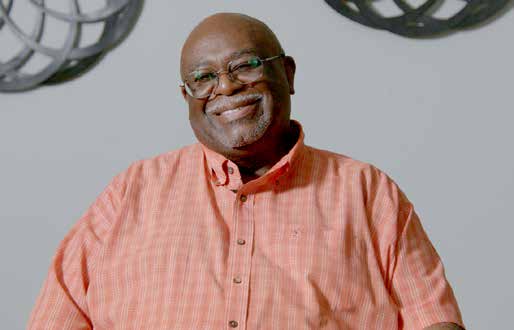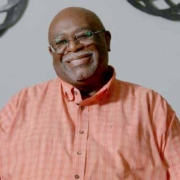DLC – Veterans Find Hope

Oviston Welch
U.S. Army Sergeant
For many veterans, the challenges of service don’t end when they return home. Nearly 1 in 3 carry the weight of invisible wounds, such as post-traumatic stress disorder, anxiety and depression, that can complicate their transition to civilian life.
With approximately 26,000 veterans in Collier County, David Lawrence Centers for Behavioral Health works each day to ensure that veterans and their families find hope. Through its dedicated Veterans’ Services Program, DLC offers personalized care, support and healing to meet the unique needs of veterans and their families.
Understanding the challenges
Veterans are especially vulnerable to a range of mental health challenges, many of which can emerge long after their transition to civilian life. Post-traumatic stress remains one of the most common concerns, often linked to combat exposure and traumatic experiences during service. Sleep disorders, such as insomnia and nightmares, are also widespread, affecting approximately 40% of veterans, nearly double the rate seen in the general population.
Depression and anxiety are also common, while substance use can emerge as some veterans turn to alcohol or drugs to cope with untreated trauma or stressors of daily life. Left untreated, these conditions can increase the risk of suicide, relapse or social isolation, showcasing the urgent need for specialized support tailored to veterans’ experiences.
DLC’s dedicated veterans’ services
DLC’s dedicated, experienced and compassionate team offers a variety of specialized services, programs and resources tailored to the unique needs of veterans. In 2024 alone, DLC served more than 215 veterans through over 9,000 services. In addition to receiving counseling and clinical treatment, veterans are also connected to vital resources including transitional housing and food assistance and connections, helping them regain stability and independence.
DLC’s services for veterans and their families include: Veterans’ Case Management focuses on peer-to-peer support, linking to services such as mental health, medical needs, social services, SNAP benefits, Medicaid/Medicare and assistance with transitional and long-term housing.
Outpatient Treatment focuses on a variety of mental and emotional health needs, such as post-traumatic stress, depression, anxiety, substance use, anger, grief and loss, and transitional challenges.
Veteran’s Treatment Court provides effective treatment and rehabilitation, as well as alternatives to incarceration to assist participants in developing the skills necessary to maintain a substance-free life, fulfill their legal obligations, and establish positive and productive relationships with their families, employers and community.
For Haleigh, the impact of the services has changed her life. An Air Force veteran and graduate of Veterans’ Treatment Court, Haleigh struggled with mental health and substance use challenges after her military service was ended by a medical discharge. She sought help from David Lawrence Centers, which provided her with a case worker who understood the unique challenges she faced as a veteran. Today, Haleigh is thriving.
“I wouldn’t be where I am today if it wasn’t for David Lawrence Centers or for veterans court or just the program in general,” she said. “The program saved my life. It really did – it saved my life. They gave me someone to lean on when I needed it. They gave me the support system I didn’t know that I needed. They really helped me get through a difficult time and taught me a whole new way of life.”
How to help or seek help
If you or someone you know is a veteran struggling with mental health or substance use challenges, help is available. For immediate support, call David Lawrence Centers’ 24-hour phone line at 239-455-8500.
How DLC can support children and families
DLC is ready to help set up your family for success. Our goal at DLC is to give children and teenagers the tools they need to have a healthy and vibrant future through thoughtful and intentional combinations of education, prevention, intervention and treatment. Our diverse programs include community-based services, voluntary day programs, psychiatric and medication evaluation, inpatient services and outpatient therapy and counseling as well as holistic therapies such as art and pet therapy, nutrition and structured fitness. Through this personalized care, the best-in-class staff at DLC gives children and young adults in need the best chance to express themselves.
To learn more about the work DLC is doing to provide lifesaving and life-changing behavioral health care to those in need, visit DLCenters.org




Leave a Reply
Want to join the discussion?Feel free to contribute!